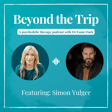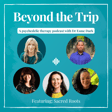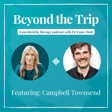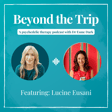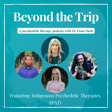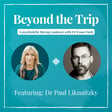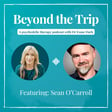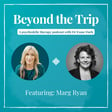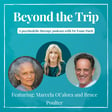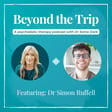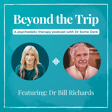
Dr David Spektor: Dyad work and the importance of vulnerability
In this episode, I talk with Dr David Spektor , who worked alongside me as my dyad partner on a two year clinical trial looking at Psilocybin assisted Psychotherapy to treat generalised anxiety disorder.
We discuss the challenges with the medical model of human distress, psychedelic research, the importance of the dyad model in psychedelic assisted therapy, the self experience study we were lucky enough to be a part of and the importance of vulnerability in therapy.
David is a Senior Clinical Psychologist having worked in the UK, New Zealand and Australia. He has 20 years of experience working in mental health as a clinical psychologist and much of that was spent in the public sector working with severe and enduring mental health issues. He currently runs a private practice based in Melbourne(www.psychologycare.com.au). He worked as a senior lecturer at the University of Melbourne as a part of the Clinical Psychology Program. He is trained in a type of emotion-focused and psychodynamic psychotherapy known as Intensive Short Term Dynamic Psychotherapy (ISTDP). Nowadays David works in psychedelic psychotherapy research through the Monash University Clinical Psychedelic Research Lab in Melbourne, Australia. He worked as a core therapist on the psilocybin-assisted psychotherapy for generalized anxiety disorder trial and currently works as a supervisor for the MDMA-assisted Psychotherapy for PTSD trial.
keep in touch with me at Insta: dresmedark
Linkedin: www.linkedin.com/in/dr-esme-dark-627156a0/
website: https://www.esmedarkpsychology.com.au/
Find David’s practice at: https://psychologycare.com.au/
Find Monash Clinical Psychedelic Lab at www.monash.edu/psychedelics
Disclaimer: This podcast if for general information only and does not constitute an endorsement or recommendation for psychedelic- assisted psychotherapy.
